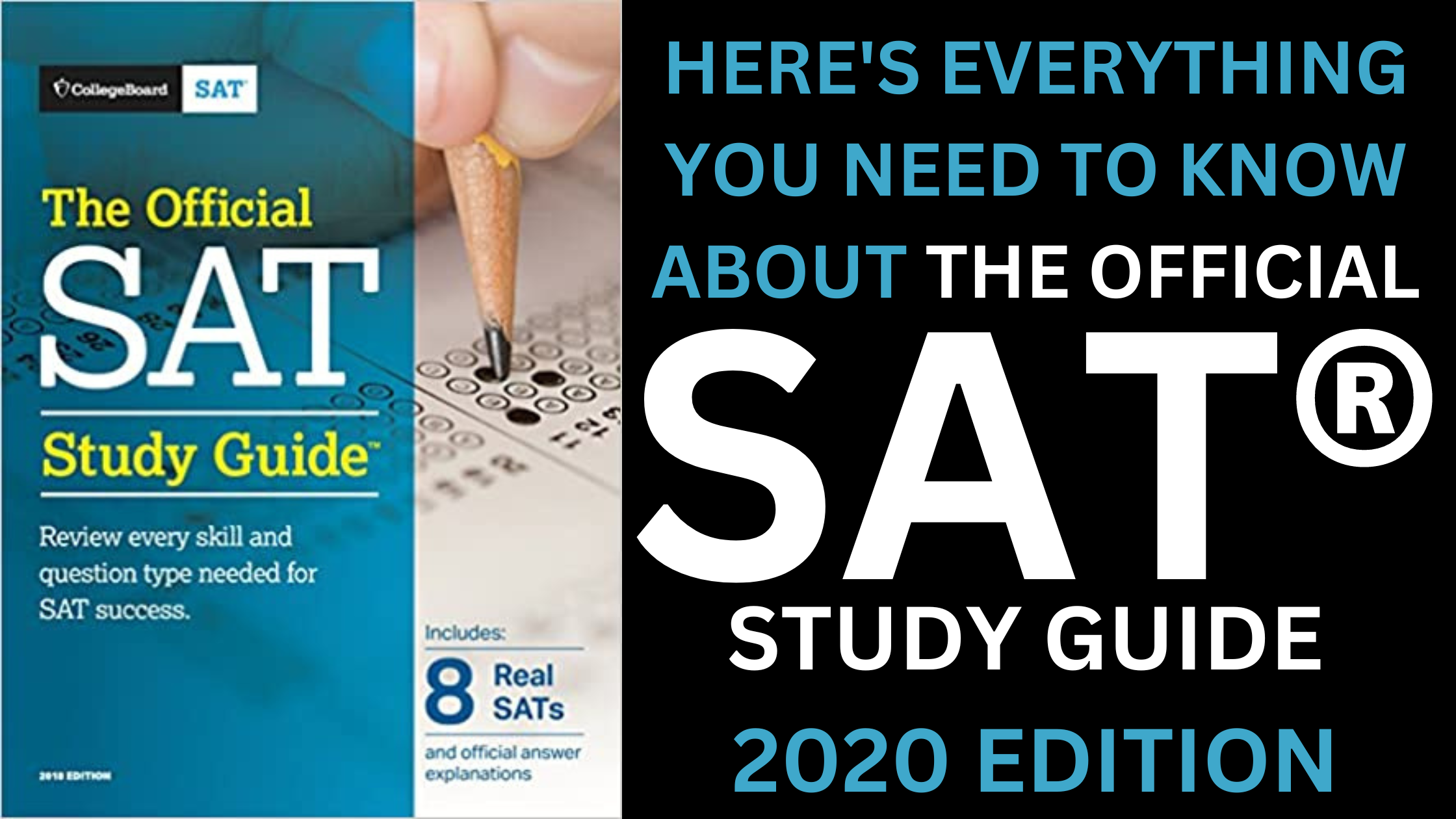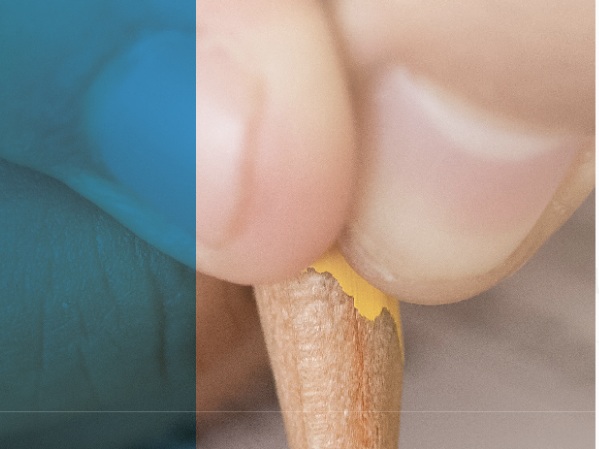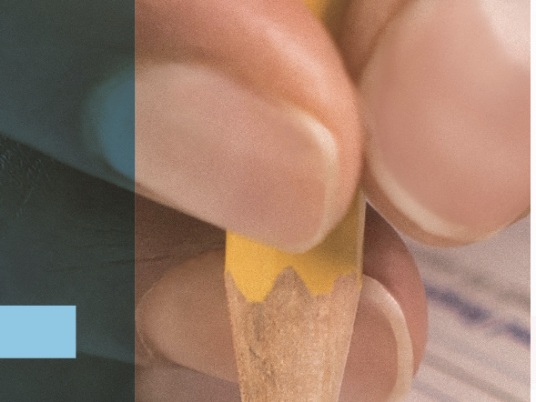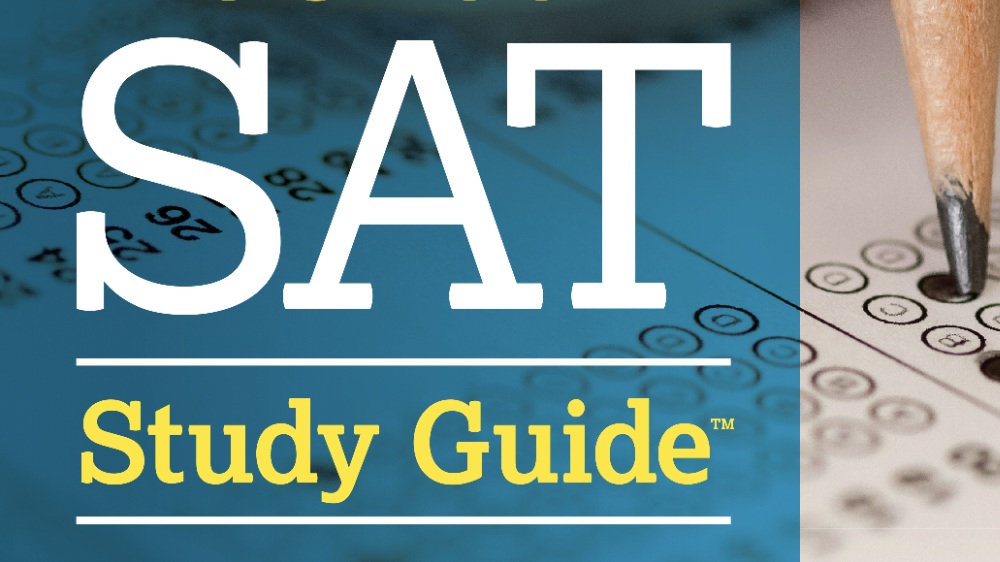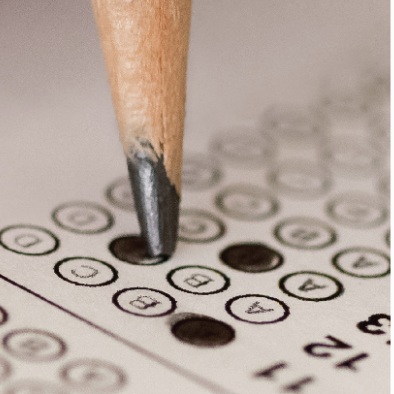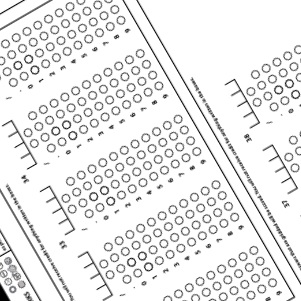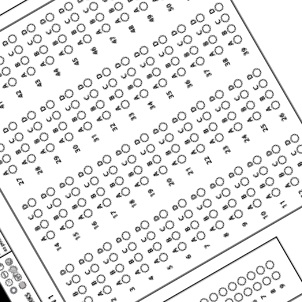Everything You Need to Know About the New SAT® Study Guide 2020 Edition
Updated on June 27, 2023
This article contains some very important information about the Official SAT® Study Guide 2020 Edition. It also contains a fun little game to reveal whether you know as much about test prep as you think you do. I guarantee you don't—at least not about this particular subject.
That said, if you’re short on time (or you hate fun), then feel free to skip directly to the TL;DR section at the bottom where we've compiled some information that will help you and your tutors avoid some major frustration.
The College Board Giveth
This week, as we approach the end of the spring test-prep season, College Board has seen fit to provide us with a new version of its flagship test-prep resource, the Official SAT® Study Guide. And, SPOILER ALERT: the 2020 edition contains two tests that weren’t in the 2018 edition.
That’s quite a gift for the students who should have started prepping for the SAT® months ago, but finally signed up for the June test ahead of last week’s registration deadline. Now these straggling students will have the benefit of two brand new practice SATs®? Well, not exactly.
Technically, The College Board “Gaveth”
Before now, these official practice SATs® were only available to elite computer hackers with:
Internet access
2-3 minutes of spare time.
Seriously, it’s not difficult to find them. Google “October 2018 SAT® PDF” or “October 2017 PDF.” Still, it seems like odd timing to release a new book with eight real tests, including two new tests.
Wait… what?
The 2018 Edition “Includes 8 Real SATs®”
As a test-prep enthusiast and keen observer of all things SAT®, you probably remember the 2018 Edition of the Official SAT® Study Guide “8 Real SATs®.” Meanwhile, the 2020 edition contains "8 Real Tests.”
It’s strange that College Board changed its unit of measurement from SATs® to Real Tests for no apparent reason. Regardless, you’d expect that after adding two new tests to the 2020 edition the College Board would be releasing a book containing exactly 10… units… of Real… SAT® whatevers. Right?
fig. 1: The 2018 Edition (detail)
fig. 2: The 2020 Edition (detail)
The 2020 Edition “Includes 8 Real Tests”
Nope!
Now, if you’re thinking of solving this like a SAT® ratio problem by finding the ratio of “Real SATs®” to “Real Tests,” then you’re doing it wrong.
I mean, I get what you’re thinking, but that’s not the trick.
Seriously, put down your pencil.
College Board Taketh Away
The mistake you made was approaching this as you would a real SAT® problem. You wrongly assumed that you had been given all the information.
If this were a real SAT® question, the test maker would be obligated to mention that right before Maria added two tests, Neil removed two other tests.
SAT® Lesson: Make No Assumptions
Assumptions get you into trouble every single time with the SAT®. For example, you may have assumed that the College Board just slapped the same cover art onto its existing Study Guide. Sure, they changed some fonts and that whole SATs® / Real Tests thing, but the two covers are essentially identical. And since it would make no sense to design an all new cover that’s virtually identical to the previous cover, we can assume that they’re both the same. Right?
Wrong! That’s precisely the false sense of security that leads students to choose trap answers! As a test-prep professional, you’ve got to be better than that!
The Game: Are you obsessed with test prep?
REMINDER: if you’re only here for the actionable information, you can still skip to the TL;DR section at the end.
Also, if you do want to play the game, this is your last chance to review the above images. When you’re ready to begin, scroll down to see whether you spotted all the strange differences between the two book covers.
Note: The rules of my game are not very well defined, but it’s sort of like the hidden images game in the magazine Highlights for Children. One of its most popular recurring features asks readers to search for smaller images (balloons, mittens, race cars, etc.) that are hidden within a full-page, black-and-white illustration. If you have no idea what I’m talking about, then feel free to Google it, Goofus! Then scroll down.
Scroll down for a list of everything you missed.
🚨 SPOILERS AHEAD 🚨
1) The hand model conspiracy.
As I mentioned above, the College Board went to great lengths to create a cover that’s VERY SIMILAR to the cover of the previous edition. Still, there are subtle differences beyond the 8 Real SATs®/Tests. Take the hand, for example. Did you notice that the College Board deliberately used a different, virtually identical, photo for the background image?
David Duchovny as world famous hand model, J.P. Pruitt, in Zoolander (2001)
A comparison of 2018 hand’s pencil grip technique to 2020 hand’s pencil grip technique reveals a clear difference. This is to say nothing of the marked improvement in hygiene and nail care exhibited by 2020’s hand.
But what does it all mean? Efforts to see how far this conspiracy extends were thwarted when J.P. Pruitt stopped returning phone calls.
Sadly, it seems we may never know for sure.
Dude, there’s no guessing penalty! Go back and fill those in!
2) Questions with no answers?
If you’re a true test-prep professional, then you’ve no doubt stared at the cover of the 2018 edition a thousand times. But did you ever ask yourself why the hand model on the cover of the 2018 edition chose to skip an entire section of the test?
2018 hand model has clearly not bubbled in an answer for questions 15-20 and 27-30 in the section above the one he or she is now working on. Why?
Is it some sort of a coded message? Perhaps a warning?
Answering #13 before #12? Is this some sort of a coded message? Or a warning!?
3) A very strange skipping strategy.
Perhaps you’d already noticed the blank section, but did you happen to notice that the 2018 hand model is bubbling in the answers OUT OF ORDER?
Obviously, there are times when you should skip a question and come back to it later. In this case, however, the hand model has completed 11 and 13 before returning to question 12.
Weird move, right?
NOTE: Before anyone comments that 2018 hand model’s skipping strategy makes perfect sense if question 13 is a Reading Cite-the-Evidence question, I’m going to preemptively cite evidence that indicates this is not the case. That evidence is discussed in Item 5, below.
4) Burst your bubble.
Perhaps the reason why the 2018 hand model did not reprise their role on the 2020 edition was the shoddy bubbling technique. All three bubbles are in violation of the College Board’s official recommendations:
It is recommended that you use a No. 2 pencil. It is very important that you fill the entire circle darkly and completely. If you change your response, erase as completely as possible. Incomplete marks or erasures may affect your score.
The mark for answer 11 extends outside the circle. The marks for answers 12 and 13 are not incompletely filled according to the recommendations above.
Could this sloppy work be the reason 2018 hand model got disappeared!?
5) Wait. What was the assignment, again?
In Item 3, we concluded that 2018 hand model couldn’t possibly have been taking a real SAT® on the cover of the workbook. That’s because the answer sheet that the 2018 hand model is filling out is not an SAT® answer sheet. That’s right. The cover of the 2018 Official SAT® Study Guide shows someone taking some other test.
This sets up a whole new mystery!
Why, after meticulously recreating the 2018 cover and carefully eliminating mistakes (read: coded messages from a distressed hand model), did the designer deliberately repeat one of the most obvious mistakes from the 2018 cover on the all new 2020 cover!?
Why didn’t this designer choose an image of a hand model completing an actual SAT® test?
The first thing you’ll notice about the 2020 edition’s answer sheet is that the empty bubbles are blue. Thus, we can conclude that neither the 2018 hand model nor the 2020 hand model is taking a real SAT® test!
6) When you assume…
In number 5, I drew the faulty conclusion that the hand models are not taking real SAT® tests. That’s not a conclusion. It’s an inference that rests on a series of unsupported assumptions. To name just 2:
The hand models are taking tests.
The hand models could not use a non-SAT® answer sheet to take an SAT® test.
When you think about it, the mere fact that an answer sheet doesn’t match the SAT® does not rule out the possibility that the test is an SAT®. More importantly, the mere fact that a hand model is photographed bubbling in bubbles on an answer sheet does not establish the existence of a corresponding test, let alone establish that the test must be an SAT®.
In reality, the evidence strongly suggests that neither hand model is actually taking any test at all, let alone an SAT®. It’s not like anyone is going to score this thing after the photo shoot.
We can infer that this background image is merely a stock photo, chosen without much thought by someone that College Board hired to whip up a cover for the study guide. We can further infer that the person hired lacked familiarity with the SAT® answer sheet and saw no issue with selecting a stock photo of a non-SAT® answer sheet. It doesn’t matter how plausible this scenario may be, it’s still only an inference.
Thanks for taking the time to play my game. Be sure to read the next section.
TL;DR: Important Changes to the Official SAT® Guide
These subtle, but important changes could cause a huge mess for you and your tutors.
What has NOT changed in the 2020 Edition:
How to get the Official SAT® Study Guide:
The 2020 edition of the Official SAT® Study Guide is available on Amazon for about $20.00 ($19.36, as I write this).
Oddly, College Board’s online store is charging $29.99. Rather, the College Board will charge $29.99 when the book becomes available on 5/17/19. Interestingly, the 2018 edition is now selling for $23.00 on Amazon. Collector’s item?
The SAT® Study Guide’s Format:
Like the 2018 edition, the 2020 edition contains the same nearly-300-page introduction, followed by practice tests and answer explanations.
The total page count (1310) is slightly longer than before (1275) on account of the slightly improved answer explanations.
Should You Buy the Official 2020 SAT® Study Guide?
That all depends on your intended use for the book. At $19.36/book, you’re paying a little under $2.50 per test. In the Product Information for the book, College Board says that because of its “commitment to transparency,” all practice test are available on the College Board’s website.
Note: As I’m writing this, the links at College Board still deliver the same old tests from the 2018 Edition.
So technically, you could download the tests as pdfs and make your own copies. Frankly, you’d have a hard time printing your own copies of tests for that price.
This blog features a number of articles about the dos and the don’ts for using real SAT® practice tests. We still strongly recommend that you use only real practice tests to assess student progress. And for all the reasons we’ve laid out in those articles, we recommend that you don’t make real tests the backbone of your test-prep curriculum. Students benefit more from a concept-centric approach than an exhausting test-centric approach. That has not changed.
What HAS changed in the 2020 edition:
Test #2 and Test #4 in the 2108 edition have been replaced in the 2020 edition with the October 2018 QAS Test and the October 2017 QAS, respectively. The term QAS refers to Question and Answer Service.
The order of the remaining tests has been reversed.
The shuffled tests in the Official SAT® Study Guide may confuse your team or confound your efforts to score and analyze practice SAT® tests. If you’re not careful to organize which tests you administer and how they’re scored and analyzed, you may end up with a mess.
How to Stay Organized:
The tests are listed below according to the order in which they now appear in the new 2020 edition. Each test’s “Test #” comes from the order in which they appeared on the list of downloadable practice tests at College Board. Below each test, we’ve included the author of the first Reading passage on that test.
The Official SAT® Study Guide (2020 Edition)
October 2018 SAT® (QAS)
- Mary Helen StefaniakOctober 2017 SAT® (QAS)
- Amy TanSAT® practice Test #8
- Carlos Ruiz ZafrónSAT® Practice Test #7
- George EliotSAT® Practice Test #6
- Daniyal MueenuddinSAT® Practice Test #5
- William MaxwellSAT® Practice Test #3
- SakiSAT® Practice Test #1
- Linda Minatoya
Why Add/Remove/Shuffle the Tests in the Book?
Short answer: the earlier tests were just not as good as the more recent tests.
In advance of the its rollout of the fully-redesigned SAT®, College Board released four practice tests. These were simulated tests, meaning they were never actually administered to students.
Practice tests 5-8 (2018 edition), on the other hand, were administered to hundreds of thousands of high school students before they were ever added to the list of downloadable practice tests at College Board SAT® Suite of Assessments. As a result, College Board has chosen to replace two of the four simulated tests with real SAT® tests.
As always, thanks for taking the time to read this week’s post! You may not have noticed, but I haven’t posted much in a while. We’ve been working crazy long hours putting together some amazing new tools for test-prep tutors. And I’m not big on farming out our blog to crank out “listicles” that aren’t worth your time to read. Anyway, thanks for your patience. We’ll have some really cool stuff to share with you soon!

